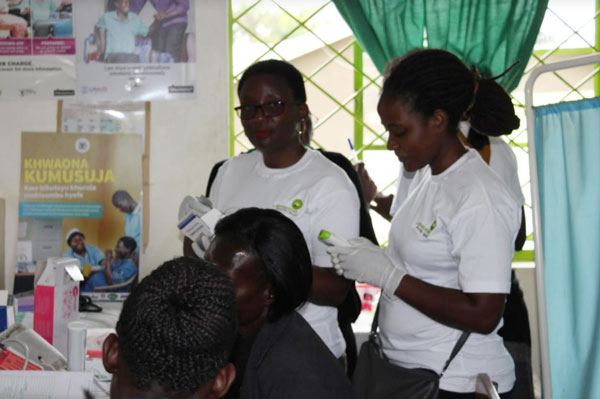
Foreign mass recruitment of Uganda’s public health workers is a threat to national security
|James Zeere| While health workers have always migrated from Uganda to work in other countries, there is a worrying trend developing of mass recruitment of Ugandan public health workers by foreign entities.
In 2015, civil society organisations in Uganda battled with the Ministry of Foreign Affairs to prevent the exportation of public health workers to Trinidad and Tobago after the government of Uganda had entered an agreement with the Caribbean nation to share some of its human resources for health. The pressure from civil society resulted in the government withdrawing from this process and the exportation of health workers to Trinidad and Tobago was halted.
First forward to May 2017 and the Benghazi Medical Center in the volatile Libyan City of Benghazi contracted a private employee migration firm, Middle East Consultants (MEC) Ltd to recruit about 1,200 health workers to be employed in its hospital.
Such demand should come as good news to a country like Uganda with a high number of unemployed citizens as this creates opportunities for the young Ugandans who have undertaken medical training at great expense but fail to find employment.
The 2016 National Census indicated that 58% of all Ugandans in the productive age (14 years and 64 years) were unemployed. Indeed, the call for applicants has been well received by Ugandan health workers as evidenced by media reports of long queues during the application process at the Middle East Consultants office in Muyenga.
With such demand, it would be expected that the health system in Uganda is supplying more health workers than are needed for health care delivery hence the need to seek employment opportunities where there is more demand. This is not the case.
The Ministry of Health in its Health Sector Development Plan in 2015 reported that, nationally, only 69% of all the vacancies within the health sector were filled leaving 31% percent of the positions existent in the health sector unfilled. Furthermore, there are variations in the regional distribution of workers such that while only 45% of positions at the more accessible Health Center IIs are filled, 70% and 71% of the positions at Health Center IIIs and IVs are filled in Uganda. Much more specialized and larger health facilities like National and Regional Referral Hospitals have more positions filled than the lower levels of health care like the Health Center IIIs and IIs which perhaps explains why the higher levels of health care are overburdened.
The World Health Organization (WHO) suggests that a ratio of 2.28 health workers for every 1000 persons indicates that a country has a critical shortage of health workers and Uganda falls within the category of countries with a critical shortage because it has a ratio of 1.55 health workers per 1,000 persons.
On two separate incidents in the space of two years a significant number of health workers have been approached for recruitment outside the country despite the dire need of health workers in Uganda. In the first incident, the government; well cognizant of its own shortages, conspired with another government to deprive the people of Uganda of health workers. In the second incident, a foreign hospital, Benghazi Medical Center in a politically volatile city contracted a private firm to recruit health workers from Uganda.
 The Independent Uganda: You get the Truth we Pay the Price
The Independent Uganda: You get the Truth we Pay the Price



